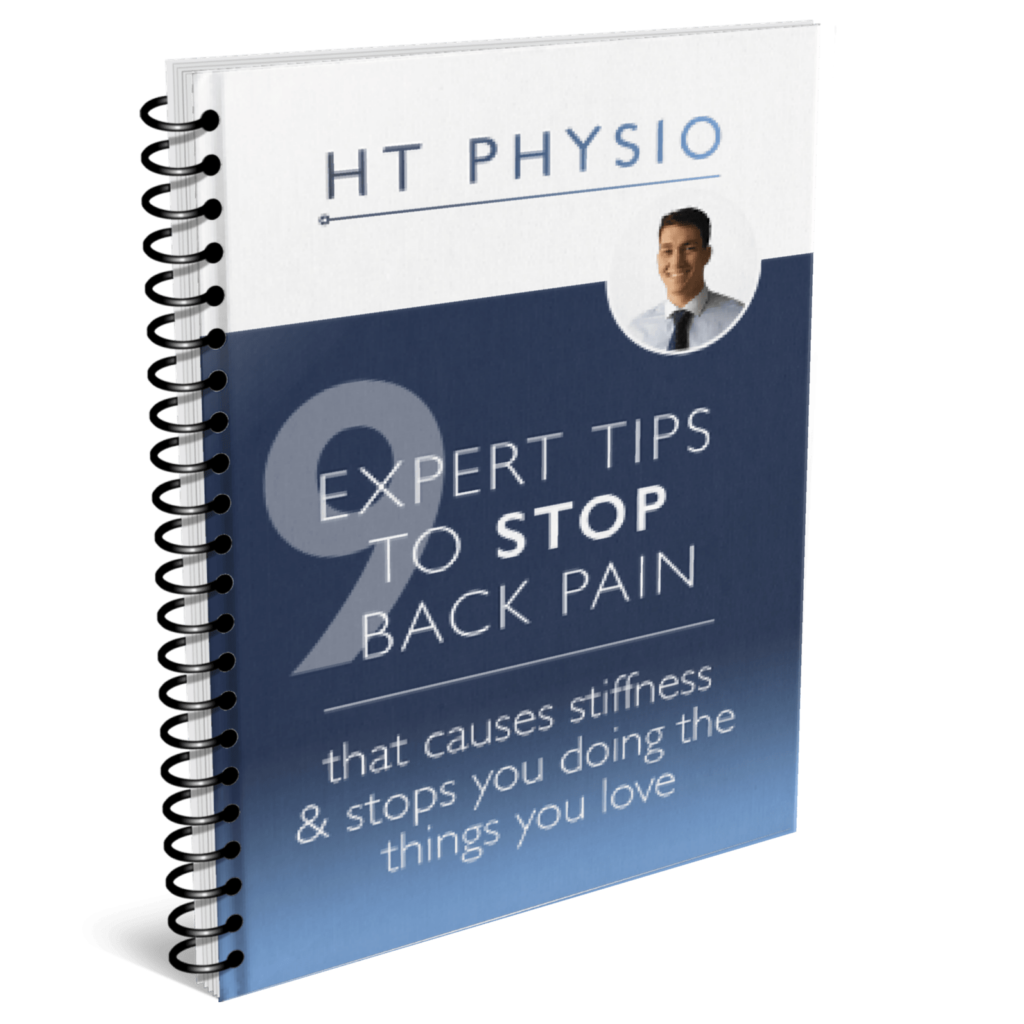Picture this: you’ve just developed back pain while doing some clearing up around the house. You tried to move a heavy box and felt something “go” in your lower back – now it’s been painful for 2 days and you don’t know what to do… One friend is saying you should rest it, while the internet is saying you need to “keep active” and “go for a walk” – what do you do??
It can be confusing when you get different advice everywhere you look. Most of the people or websites that give you advice are well-meaning, but when it’s all contradictory it’s really hard to make the right decision.
Luckily, we have a general rule that we advise all our clients about rest and back pain, and I’m going to share it with you today!
Rest for Back Pain
When your back is painful with every movement, rest probably feels like the right thing to do to ease it.
Rest is usually when the body does its healing. If you think in evolutional terms, we experience pain precisely because it forces us to rest.
When you sprain your ankle, it hurts so much that you are unable to walk on it – this is your body’s way of forcing you to take rest. If you think about it like this, it’s incredibly clever!
However, most people now know that the general advice given around back pain these days is not to rest after an injury. About 20 years ago, the standard advice after back pain was to take 6 weeks of bed rest… However this just made people worse!

While back pain is probably managed better nowadays than 20 years ago, there is still room for us to improve.
For example, we know that rest can be helpful for back pain – but it’s important to know how much rest and for how long.
Nowadays, the definition of “rest” has changed a bit as well. 20 years ago, “rest” meant bed rest – not moving at all for days at a time. However, now we prefer the term “active rest”, which refers to the act of avoiding lifting or shifting tasks, but still walking, cycling and moving about in any way that doesn’t cause excess pain. Active rest is far better for your back than bed rest.
So, When Should You Rest with Back Pain?
If you develop new back pain and you’re finding it difficult to walk, work and live normally without pain, we would recommend that you take 2-3 days of active rest.
With active rest, it’s important to keep moving in any way that you can that doesn’t make your symptoms worse. For example, you might not be able to walk far because of your back pain, but cycling might be OK – in this instance, you should only walk short distances but try to replace your normal walking with a few short cycle rides.
And yes, it is absolutely OK to put your feet up for a few days too! But it’s important not to stay in any one position for longer than an hour or two at a time. Be sure to regularly change positions when having a relaxing day.
After a 2-3 day period of active rest, most people’s back pain will have reduced significantly. When your back starts to feel better, it’s OK to start your normal day-to-day activities (but be sure to take it easy for the next couple of weeks and stop if you start to feel pain again).
When Shouldn’t You Rest with Back Pain?
If your back pain has gone on for a few weeks and you tried active rest, you might find that trying to do as much as you can within a pain-free range (including work and physical hobbies) may make your back feel better.
This might feel strange and maybe a little scary at first – you could be worried that you’ll do more damage to your back – but usually, provided you take it easy and build up your activity levels slowly, you’ll be fine!
The other time you shouldn’t rest with back pain is when your symptoms are caused by arthritis. Quite often, in people over 50, back pain is caused by age-related changes.
When this is the cause of back pain, resting will only make the back stiffer. Movement is key at times like this, to help you loosen up the movement of your back and improve overall mobility.
How to Get Help for Back Pain
When you’ve had back pain for over 2 weeks, it’s usually a good idea to get some advice about the things you should be doing to help it.
As everyone is different, you can’t beat individual advice for back pain.
However, we do have some great general advice that works for the majority of people with back pain. We put it into a downloadable guide called “9 Expert Tips to Stop Back Pain that Causes Stiffness and Stops You from Doing the Things You Love“.

Did you find this article helpful? What have you found that helps you back pain? Reach out and let me know at will@ht-physio.co.uk!
